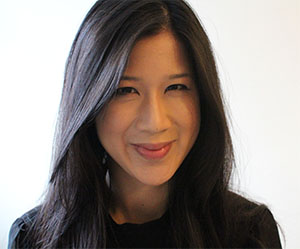Carmen Ho, 29, Political Science
Every year, at least three million kids die because they don’t have the right things to eat.
That fact is defining Carmen Ho’s career. She knows that nutritional interventions could save at least 900,000 of those lives—and that right now, those critical vitamins and minerals aren’t reaching the mouths that need them. “This is what motivates me to carry out research at the intersection of nutrition and politics,” she says.
Carmen Ho. (Photo: Peter Harron)

Ho comes from a global perspective: Her parents are from Singapore and Malaysia and she was born in Australia but is now a Canadian citizen. The year before she started her graduate work, she worked in the Philippines to support local governments. Now she’s getting her Ph.D. in political science at the University of Toronto, specializing in international development studies.
Ho also manages the Global Ideas Institute, a group that teaches teenagers how to do meaningful research. “Over the past two years,” she says, “we’ve been bringing together leading professors, practitioners, and students to work on challenges relating to food and nutrition insecurity.”
Her own research focuses on the political factors that affect how—or whether—nutritional interventions are delivered, an academic area she says is far too neglected. Her dissertation delves into how governance can help or hurt children who lack basic dietary staples.
“Severe undernutrition is life-defining,” she says. “It can stunt physical development, impair cognitive skills, increase susceptibility to disease, and result in early death.”
Ho’s mentor, Stanley Zlotkin, is the head of global child health at Toronto’s Hospital for Children (SickKids). In the 1990s, UNICEF asked him for an effective method to treat childhood anemia in the developing world. In response, he created micronutrient powders (MNPs), a tasteless vitamin and mineral blend nicknamed “sprinkles” because it’s sprinkled onto whatever a child would normally eat.
Ho is involved with SickKids’s Centre for Global Child Health, and Zlotkin is a member of Ho’s dissertation committee. “Stan has taught me a lot about global nutrition,” Ho says, “involved me with his research projects, and has played an important role in my academic development.”
So important, in fact, that a huge chunk of her research centers around Zlotkin’s miracle powder. “I am part of a team of scientists and nutritionists looking at the national scale-up on MNPs in Bolivia,” Ho says. “We are investigating the components that contributed to building a national MNP program and are also working to identify challenges in increasing coverage and adherence.” In other words, Ho is working to figure out how politics plays a role in getting people the health-bolstering stuff they need.
Sprinkles, Ho admits, don’t address the primary causes of food insecurity. But “the intervention can treat and prevent the micronutrient deficiencies that result,” she says. “This is particularly important as deficiencies in essential vitamins and minerals in the first 1,000 days of a child’s life can result in long-term and irreversible consequences.”
This September, Ho will join UNICEF’s Maternal and Young Child Nutrition Security Initiative in Asia to do field research for her dissertation and report on their policy work. “Again, I’ll be joining a team of scientists and nutritionists,” she says, “and look forward to bringing a political science perspective to the project.”
See our complete 2014 list of the 30 top thinkers under 30 here.





